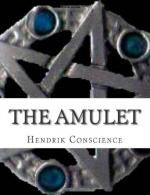of grief and rage when I heard afar off her piercing
cries as the rod of the overseer descended upon her.
One day my indignation was so roused, when the pagan
wretches had knocked her down and were treating her
even more cruelly than usual, that I dared to defend
her by force. Had not my master expected a large
sum for my ransom, a frightful death would have been
the punishment of my audacity. After being kept
a few days in prison and harshly treated, I was sent
back to the fields to work as before. The condition
of the blind slave was not in the least changed; she
was still inhumanly beaten. Her misfortunes pierced
my heart, and I was maddened by my inability to protect
from pagan cruelty a woman who was my sister by our
common faith and a common misfortune. No longer
venturing to have recourse to force, I sought other
means to mitigate her sufferings. During the
few hours of repose granted to us, or rather to our
overseers, I hastened to the blind woman and shared
with her the best of my food; I strove to fortify
her by the hope that God would liberate her from this
terrible slavery; I told her, that should I ever become
free, I would procure her liberation, even were it
necessary to renounce for years my own pleasures that
I might amass sufficient for her ransom. I spoke
to her of our country, of the goodness of God, and
of the probability of my liberation. The poor
blind woman kissed my hands, and called me an angel
sent by God to illumine the darkness of her life by
the sweet rays of consolation and piety. I was
only a few months her fellow-slave. My uncle,
learning my captivity through messengers I had employed,
sent to Algiers an armed vessel to liberate me.
Besides the amount of my ransom, he sent me means
to transport some valuable merchandise from Barbary
to Italy. When I took leave of the blind woman,
I was so deeply touched by her sorrow, that I pondered
upon the means of restoring her to liberty. It
is true that in order to effect this, I would be obliged
to employ a large portion of the money sent me by
my uncle for the purchase of merchandise, and I was
convinced that my uncle, who was inflexible in exacting
fidelity to commercial regulations, would overwhelm
me with his anger, but my heart gained the ascendency
over my reason, and Christian charity triumphed.
Listening only to my compassion, I ransomed the unfortunate
woman, and with my own hands I unbound her chains.
That was the happiest moment of my life.”
Mary and her father were both touched by the recital of the young man.
“Oh, Geronimo,” exclaimed Mary, “may God bless you for having been so compassionate to the poor Christian slave!”
“You did well, Geronimo,” said Mr. Van de Werve, “and I esteem and love you more for your generosity to the unfortunate blind woman. How happy her unexpected liberation must have made her!”




